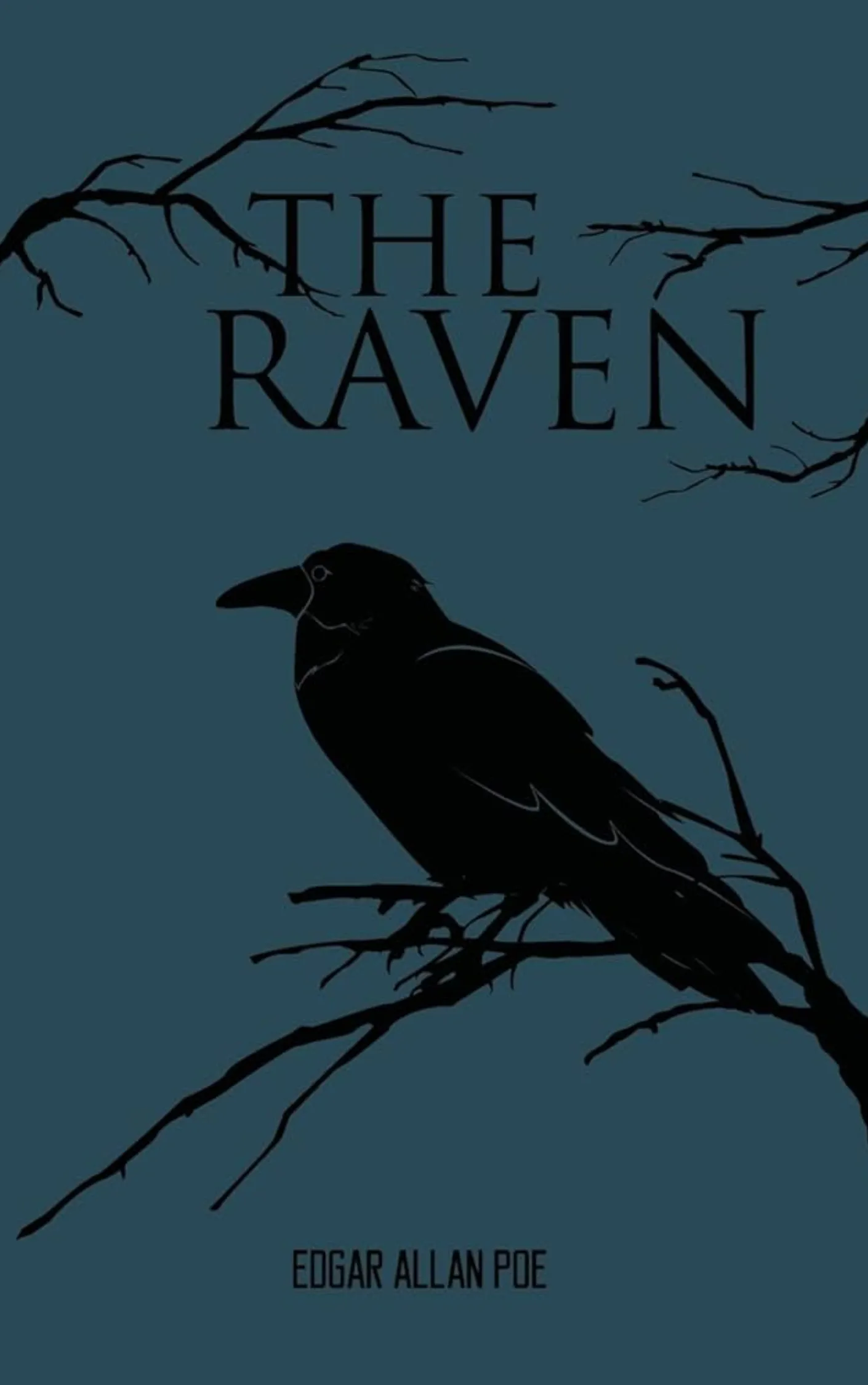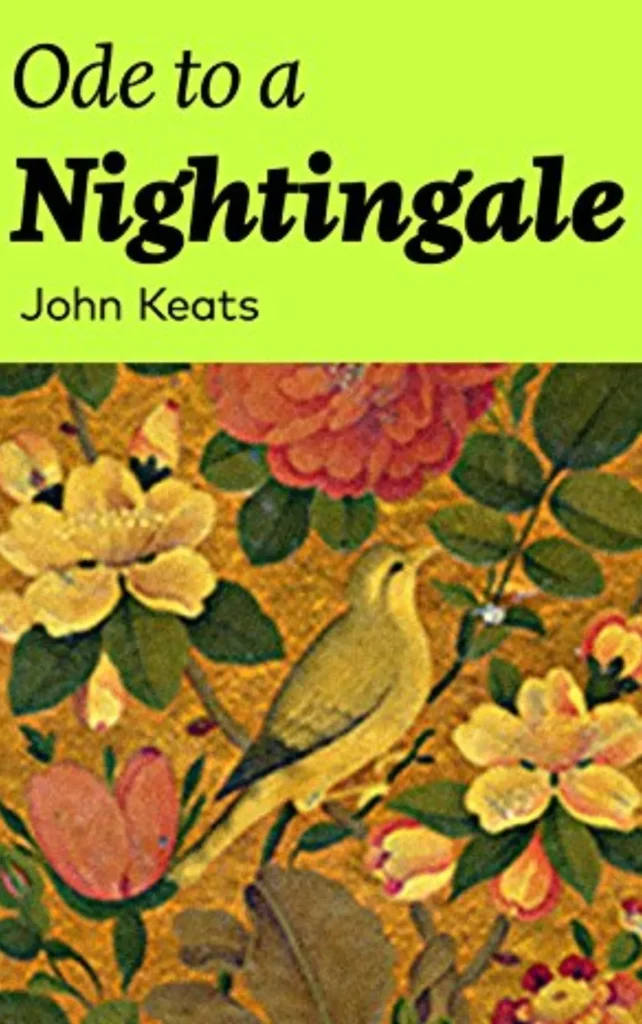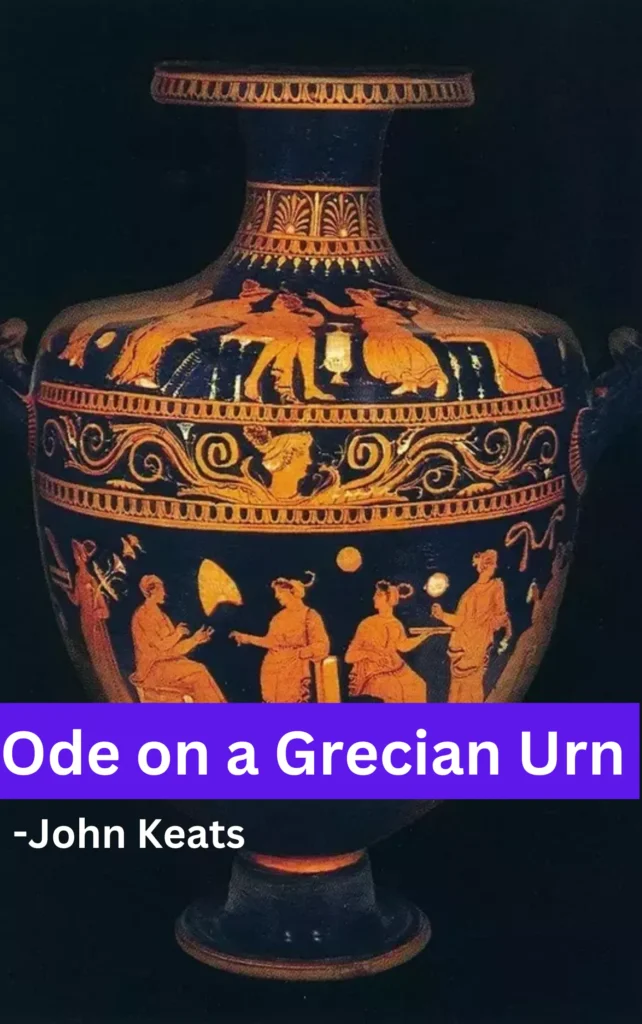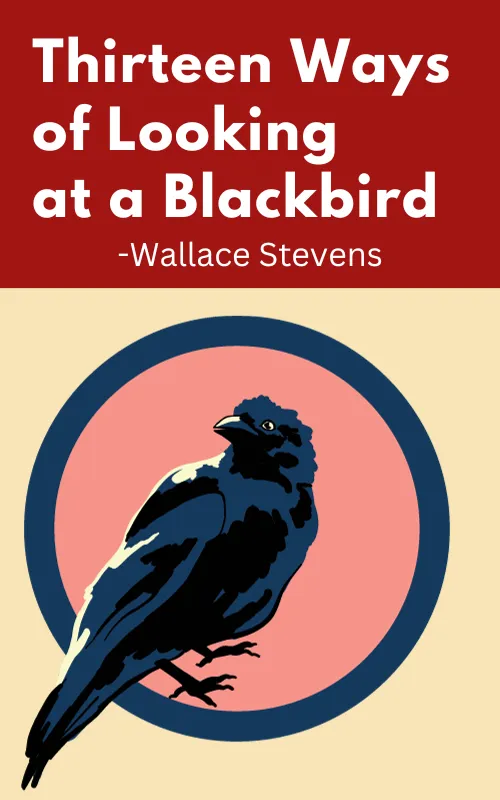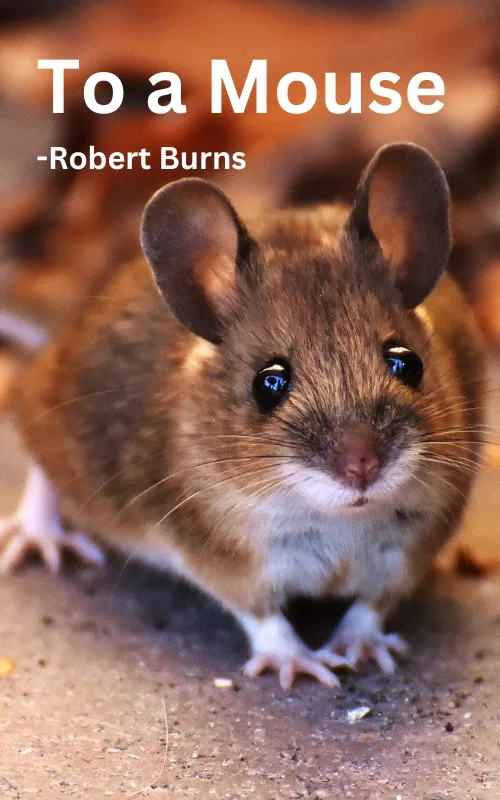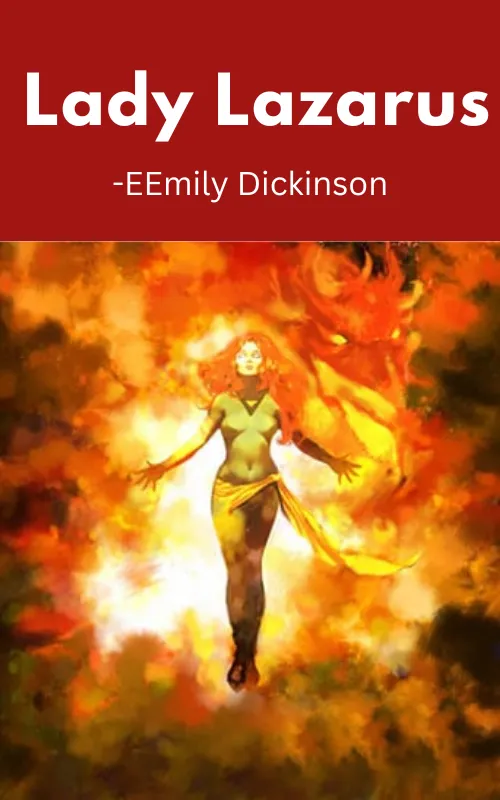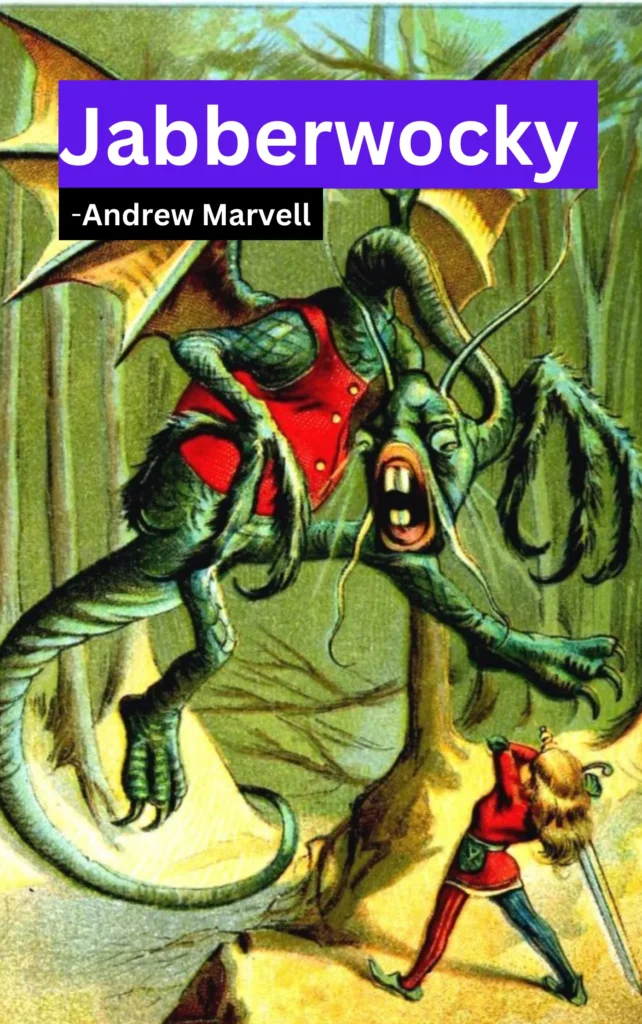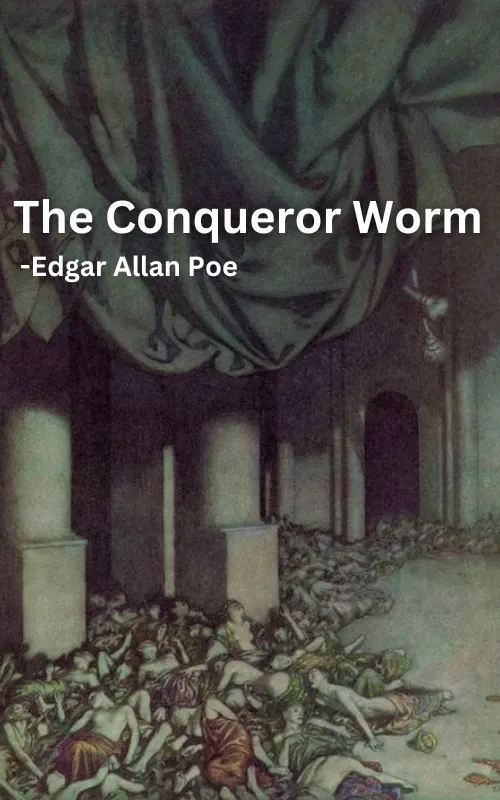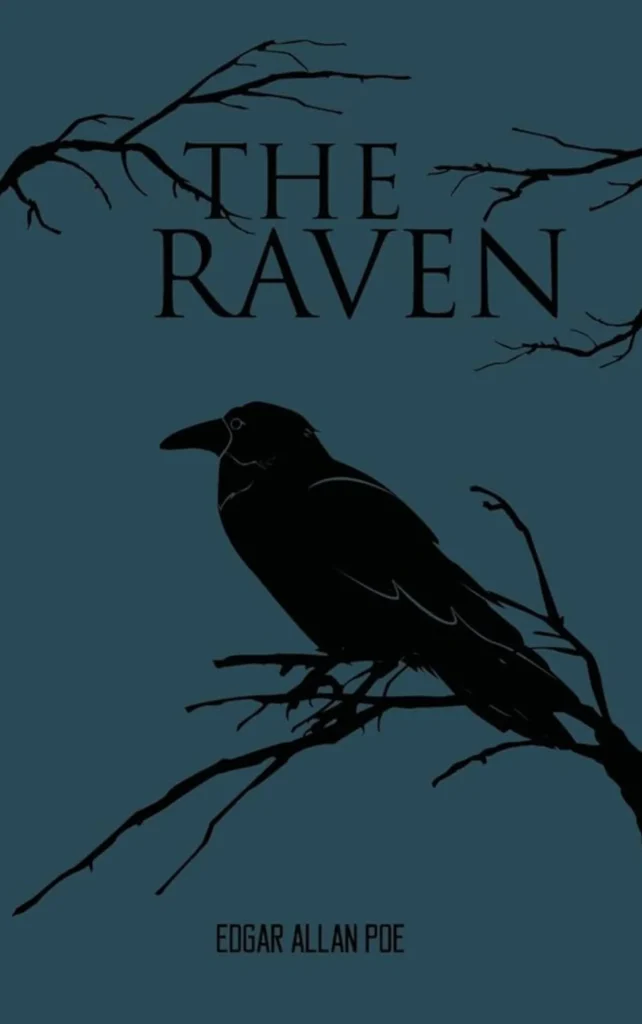
About Poem-The Raven
| Poem Title | The Raven |
| Author | Edgar Allan Poe |
| Genre | Narrative poem |
| Publication date | 1845 |
| Speaker | An unnamed man |
| Setting | The man’s study on a December night |
| Subject | The man’s encounter with a talking raven |
| Themes | Loss, grief, madness, the supernatural |
The Raven Poem
Once upon a midnight dreary, while I pondered, weak and weary,
Over many a quaint and curious volume of forgotten lore—
While I nodded, nearly napping, suddenly there came a tapping,
As of some one gently rapping, rapping at my chamber door.
“’Tis some visitor,” I muttered, “tapping at my chamber door—
Only this and nothing more.”
Ah, distinctly I remember it was in the bleak December;
And each separate dying ember wrought its ghost upon the floor.
Eagerly I wished the morrow;—vainly I had sought to borrow
From my books surcease of sorrow—sorrow for the lost Lenore—
For the rare and radiant maiden whom the angels name Lenore—
Nameless here for evermore.
And the silken, sad, uncertain rustling of each purple curtain
Thrilled me—filled me with fantastic terrors never felt before;
So that now, to still the beating of my heart, I stood repeating
“’Tis some visitor entreating entrance at my chamber door—
Some late visitor entreating entrance at my chamber door;—
This it is and nothing more.”
Presently my soul grew stronger; hesitating then no longer,
“Sir,” said I, “or Madam, truly your forgiveness I implore;
But the fact is I was napping, and so gently you came rapping,
And so faintly you came tapping, tapping at my chamber door,
That I scarce was sure I heard you”—here I opened wide the door;—
Darkness there and nothing more.
Deep into that darkness peering, long I stood there wondering, fearing,
Doubting, dreaming dreams no mortal ever dared to dream before;
But the silence was unbroken, and the stillness gave no token,
And the only word there spoken was the whispered word, “Lenore?”
This I whispered, and an echo murmured back the word, “Lenore!”—
Merely this and nothing more.
Back into the chamber turning, all my soul within me burning,
Soon again I heard a tapping somewhat louder than before.
“Surely,” said I, “surely that is something at my window lattice;
Let me see, then, what thereat is, and this mystery explore—
Let my heart be still a moment and this mystery explore;—
’Tis the wind and nothing more!”
Open here I flung the shutter, when, with many a flirt and flutter,
In there stepped a stately Raven of the saintly days of yore;
Not the least obeisance made he; not a minute stopped or stayed he;
But, with mien of lord or lady, perched above my chamber door—
Perched upon a bust of Pallas just above my chamber door—
Perched, and sat, and nothing more.
Then this ebony bird beguiling my sad fancy into smiling,
By the grave and stern decorum of the countenance it wore,
“Though thy crest be shorn and shaven, thou,” I said, “art sure no craven,
Ghastly grim and ancient Raven wandering from the Nightly shore—
Tell me what thy lordly name is on the Night’s Plutonian shore!”
Quoth the Raven “Nevermore.”
Much I marvelled this ungainly fowl to hear discourse so plainly,
Though its answer little meaning—little relevancy bore;
For we cannot help agreeing that no living human being
Ever yet was blessed with seeing bird above his chamber door—
Bird or beast upon the sculptured bust above his chamber door,
With such name as “Nevermore.”
But the Raven, sitting lonely on the placid bust, spoke only
That one word, as if his soul in that one word he did outpour.
Nothing farther then he uttered—not a feather then he fluttered—
Till I scarcely more than muttered “Other friends have flown before—
On the morrow he will leave me, as my Hopes have flown before.”
Then the bird said “Nevermore.”
Startled at the stillness broken by reply so aptly spoken,
“Doubtless,” said I, “what it utters is its only stock and store
Caught from some unhappy master whom unmerciful Disaster
Followed fast and followed faster till his songs one burden bore—
Till the dirges of his Hope that melancholy burden bore
Of ‘Never—nevermore’.”
But the Raven still beguiling all my fancy into smiling,
Straight I wheeled a cushioned seat in front of bird, and bust and door;
Then, upon the velvet sinking, I betook myself to linking
Fancy unto fancy, thinking what this ominous bird of yore—
What this grim, ungainly, ghastly, gaunt, and ominous bird of yore
Meant in croaking “Nevermore.”
This I sat engaged in guessing, but no syllable expressing
To the fowl whose fiery eyes now burned into my bosom’s core;
This and more I sat divining, with my head at ease reclining
On the cushion’s velvet lining that the lamp-light gloated o’er,
But whose velvet-violet lining with the lamp-light gloating o’er,
She shall press, ah, nevermore!
Then, methought, the air grew denser, perfumed from an unseen censer
Swung by Seraphim whose foot-falls tinkled on the tufted floor.
“Wretch,” I cried, “thy God hath lent thee—by these angels he hath sent thee
Respite—respite and nepenthe from thy memories of Lenore;
Quaff, oh quaff this kind nepenthe and forget this lost Lenore!”
Quoth the Raven “Nevermore.”
“Prophet!” said I, “thing of evil!—prophet still, if bird or devil!—
Whether Tempter sent, or whether tempest tossed thee here ashore,
Desolate yet all undaunted, on this desert land enchanted—
On this home by Horror haunted—tell me truly, I implore—
Is there—is there balm in Gilead?—tell me—tell me, I implore!”
Quoth the Raven “Nevermore.”
“Prophet!” said I, “thing of evil!—prophet still, if bird or devil!
By that Heaven that bends above us—by that God we both adore—
Tell this soul with sorrow laden if, within the distant Aidenn,
It shall clasp a sainted maiden whom the angels name Lenore—
Clasp a rare and radiant maiden whom the angels name Lenore.”
Quoth the Raven “Nevermore.”
“Be that word our sign of parting, bird or fiend!” I shrieked, upstarting—
“Get thee back into the tempest and the Night’s Plutonian shore!
Leave no black plume as a token of that lie thy soul hath spoken!
Leave my loneliness unbroken!—quit the bust above my door!
Take thy beak from out my heart, and take thy form from off my door!”
Quoth the Raven “Nevermore.”
And the Raven, never flitting, still is sitting, still is sitting
On the pallid bust of Pallas just above my chamber door;
And his eyes have all the seeming of a demon’s that is dreaming,
And the lamp-light o’er him streaming throws his shadow on the floor;
And my soul from out that shadow that lies floating on the floor
Shall be lifted—nevermore!
The Raven Summary and Analysis
“The Raven” by Edgar Allan Poe is a famous narrative poem that was first published in 1845. The poem is known for its dark, melancholic tone and its exploration of themes like grief, loss, and the human psyche. It consists of 18 stanzas and tells the story of a man who is visited by a mysterious raven one night. Here is a stanza-by-stanza summary of the poem:
Stanza 1: The poem begins with the speaker, who is distraught and mourning the loss of his love, Lenore. He is reading old books to distract himself from his sorrow, but the midnight hour deepens his sense of melancholy.
Stanza 2: As the speaker is about to doze off, he hears a tapping at his chamber door. He initially believes it is a visitor and calls out Lenore’s name, but there is no response. He then opens the door to find darkness.
Stanza 3: The speaker whispers “Lenore” again, and the only word echoed back is “Lenore.” He returns to his chamber, still believing it’s just the wind.
Stanza 4: As the speaker tries to calm himself, he hears another noise, this time a tapping on his window. He opens the window and, to his astonishment, a raven flies in and perches on a bust of Pallas Athena above his chamber door.
Stanza 5: The speaker is amused by the bird’s arrival and assumes it is a lost pet. He wonders about the meaning of the bird’s presence and its name.
Stanza 6: The speaker tries to engage with the raven, asking it for its name and telling it that it will soon fly away like all the others. The raven responds with a single word, “Nevermore.”
Stanza 7: The speaker is intrigued by the raven’s response, as it seems to hold some significance. He assumes the raven learned this word from a previous owner and is now repeating it.
Stanza 8: The speaker continues to question the raven, asking about its former owner and its previous knowledge. The raven, however, only responds with “Nevermore.”
Stanza 9: The speaker’s curiosity turns to despair, and he starts to reflect on his lost love, Lenore, whose name the raven also repeats as if to taunt him.
Stanza 10: The speaker feels his soul sinking into the darkness, and he implores the raven to leave him in solitude. The raven responds, “Nevermore.”
Stanza 11: The speaker begins to lose his sanity, wondering if there is a balm in Gilead that can cure his sorrow. The raven, once again, answers with “Nevermore.”
Stanza 12: The speaker now sees the raven as a prophet of doom and asks if there is hope in the afterlife. The raven’s response is consistent: “Nevermore.”
Stanza 13: The speaker, overcome with despair, asks the raven if he will ever be reunited with Lenore in heaven. The raven’s response remains the same, driving the speaker further into madness.
Stanza 14: The speaker is now convinced that the raven is a demon sent to torment him. He demands that the raven leave and return to the night’s Plutonian shore.
Stanza 15: Despite his demands, the raven continues to perch above the chamber door, casting a shadow on the speaker’s soul. The speaker resigns himself to his fate.
Stanza 16: The speaker’s soul is now trapped in the shadow of the raven, and he declares that he shall hold his lost love, Lenore, in his heart forevermore.
Stanza 17: The poem ends with the speaker in a state of perpetual darkness and despair, as the raven remains perched above him, repeating the word “Nevermore.”
Stanza 18: In the final stanza, the speaker describes the raven’s shadow spreading over his soul, and he acknowledges that his soul will be lifted “Nevermore.”
The Raven FAQs
What is the meaning behind The Raven?
The Raven is a poem about loss, grief, and the inability to move on.
What is the mental illness in The Raven?
The mental illness in The Raven is grief-induced madness.
What is the famous line from The Raven?
The most famous line from the poem “The Raven” by Edgar Allan Poe is “Quoth the Raven, ‘Nevermore.“
What are the 3 symbols in the raven?
The three symbols in the poem “The Raven” by Edgar Allan Poe are the raven, the bust of Pallas Athena, and the speaker’s chamber.
What does the Bible say about ravens?
Ravens are mentioned in the Bible as symbols of God’s provision and care for creation.
What does the raven symbolize in Celtic mythology?
The raven symbolizes death, prophecy, and transformation in Celtic mythology.
What is the main emotion conveyed by the narrator in the raven?
The main emotion conveyed by the narrator in “The Raven” is grief.

